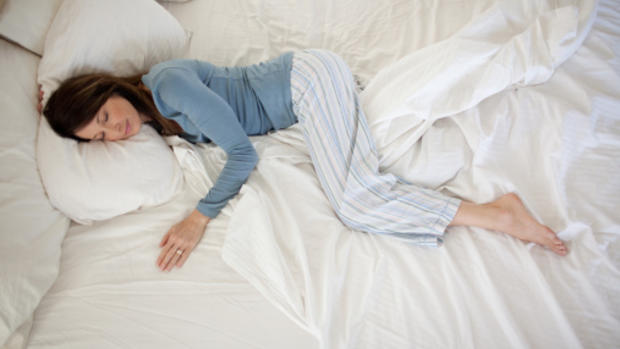All-natural tips for a better night's sleep
At least 40 million people in the United States suffer from chronic, long-term sleep disorders, according to the National Institutes of Health, and each year, Americans spend over $2 billion for prescription and over-the-counter sleep aids. But a good night's sleep doesn't have to be so elusive, experts say. In fact, getting more restful sleep could be as simple as making a change to your breathing pattern.
"Sleep is not an on/off switch," clinical psychologist and specialist in sleep medicine Michael Breus told "CBS This Morning." "You don't just walk in, turn off the light, and your brain immediately clicks over. It's more like pulling your foot off the gas and slowly putting it on the brake. There's a process that has to occur."
That process, Breus says, should begin with the breath. He suggests an ancient breathing technique called the 4-7-8 breathing method which has helped people relax for centuries. To begin, inhale for four seconds, hold your breath for seven seconds, and exhale slowly for eight seconds.
The process has several benefits. First, inhaling and holding the air in leads to an overall increased level of oxygen in the body. "By holding the oxygen in, more oxygen is in your system, the less work for your body to do," Breus said.
Next, exhaling for a longer period of time can help you unwind. "It's almost meditative, and when you allow that meditation to occur, you start to calm down and relax," he said.
This technique can help you fall asleep faster by imitating actual sleep. "When you breathe out very slowly, it's very similar to what your body is naturally going to do when you're starting to fall asleep, so you're almost mimicking the sleep process," Breus said. A total of five to 10 such breathing cycles should do the trick.
Breus also recommends a steady "power-down" routine before bed each night, something that can be difficult to accomplish with kids, busy work schedules, and other commitments. The first step is getting organized for the next morning.
"Roughly the hour before you go to bed, take 20 minutes for stuff you just have to do," he said. Then, spend another 20 minutes on personal hygiene, and finally another 20 minutes on relaxation. Some suggestions for this last period of time include the 4-7-8 breathing method, counting backwards, praying, or reading.
Such sleep routines "allow the body to slowly coast into sleep," Breus said. "There's no question it has a major effect on your ability to sleep."
